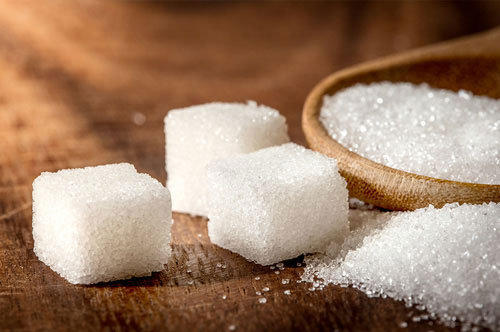IN this episode of Medical Myths, we discuss some of the many misunder standings surrounding one of the sweetest nutritional topics: sugar. Today is the first day of Sugar Awareness Week. With this in mind, the Medical Myths truth wagon will take a cruise to Sugar Town via Misconception Lane.
Over the centuries, this crystalline sweetener has invaded everyone’s snacks, drinks, guts, and minds. It has caused its fair share of controversy, too.
Although everyone is familiar with sugar as a concept, we’ll start with a brief explainer.
What is sugar?
Sugar is a soluble carbohydrate — a biological molecule consisting of carbon, hydrogen, and oxygen atoms. Other carbohydrates include starch and cellulose, which is a structural component of plant cell walls.
Simple sugars, or monosaccharides, include glucose and fructose. Granulated sugar is a compound sugar, or disaccharide, known as sucrose, which consists of glucose and fructose. During digestion, the body breaks down disaccharides into monosaccharides.
Still, the chemistry of sugar does not explain its infamy. The substance gained its dastardly reputation because it tastes delicious and, if consumed too freely, is bad for our health.
1. Sugar is addictive
Some experts believe sugar is an addictive substance. For instance, the authors of a controversial narrative review in 2017 write:
“Animal data has shown significant overlap between the consumption of added sugars and drug-like effects, including bingeing, craving, tolerance, withdrawal, cross-sensitization, cross-tolerance, cross-dependence, and reward and opioid effects.”
However, this review focuses on animal studies. As the authors of another review explain, “there is a methodological challenge in translating this work because humans rarely consume sugar in isolation.”
Dr. Dominic M. Dwyer from Cardiff University’s School of Psychology explains, “Although certainly present in some people, addiction-like behaviors toward sugar and other foods are present only in a minority of obese individuals. However, we should remember that sugar can drive the overconsumption of foods alongside its addiction-like potential.”
Along similar lines, Prof. David Nutt, Chair of the Independent Scientific Committee on Drugs and head of the Department of Neuro-psychopharmacology and Molecular Imaging at Imperial College London, writes.







